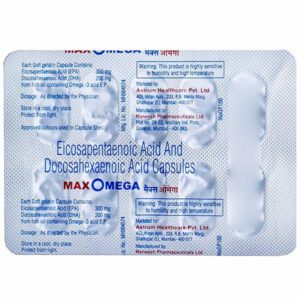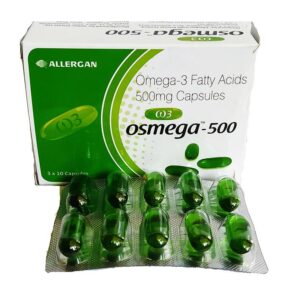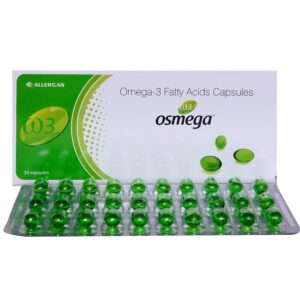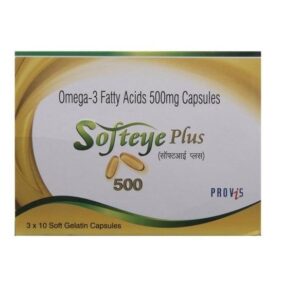EICOSAPENTAENOIC ACID (EPA) + DOCOSAHEXAENOIC ACID (DHA)
Eicosapentaenoic Acid (epa): Eicosapentaenoic Acid (EPA) is a type of omega-3 fatty acid that is found in fish oil and other seafood. It is commonly used as a dietary supplement and medication for various conditions.
EPA is primarily used to reduce inflammation in the body, making it beneficial for conditions such as rheumatoid arthritis, psoriasis, and asthma. It is also used to reduce high triglyceride levels in the blood, which can lower the risk of heart disease.
The exact mechanism of action of EPA is not completely understood, but it is thought to work by reducing the production of inflammatory substances in the body, such as cytokines and prostaglandins. It also helps to inhibit the formation of blood clots by reducing the stickiness of platelets.
The recommended dose of EPA can vary depending on the condition being treated. For reducing inflammation and managing rheumatoid arthritis, doses usually range from 2 to 3 grams per day. For reducing high triglyceride levels, doses can range from 2 to 4 grams per day. It is important to follow the instructions and dosage recommendations provided by your healthcare provider.
Like any medication or supplement, EPA can have side effects. Common side effects include fishy aftertaste, burping, and diarrhea. These side effects are usually mild and can be minimized by taking the supplement with food or switching to enteric-coated capsules. In rare cases, EPA might increase the risk of bleeding, so caution should be exercised in individuals with bleeding disorders or those taking blood-thinning medications.
It is also important to note that EPA supplements should be used with caution in individuals with seafood allergies or sensitivities. It is recommended to consult with a healthcare provider before starting EPA supplementation to ensure it is safe and appropriate for your individual circumstances.
Docosahexaenoic Acid (dha): Docosahexaenoic acid (DHA) is an omega-3 fatty acid that is found in high concentrations in fish oil and certain species of microalgae. It is an essential nutrient for brain development and function, and is particularly important during pregnancy and early childhood.
DHA is commonly used as a dietary supplement to support brain health and cognitive function. It is also believed to have anti-inflammatory effects and may help reduce the risk of certain chronic diseases, like heart disease and arthritis.
The exact mechanism of action of DHA is not fully understood, but it is known to play a crucial role in the structure and function of cell membranes, especially in the central nervous system. It helps maintain the fluidity and integrity of cell membranes, allowing for optimal communication between neurons.
The recommended doses of DHA vary depending on the specific health condition being targeted. For general brain health and cognitive function, a typical daily dose ranges from 200-500 mg. However, higher doses may be recommended for specific conditions, such as high triglyceride levels or certain psychiatric disorders.
DHA supplements are generally well-tolerated, and side effects are rare. However, some users may experience mild gastrointestinal symptoms, such as bloating, diarrhea, or indigestion. In rare cases, high doses of DHA may prolong bleeding time, so it should be used with caution in individuals with bleeding disorders or those taking anticoagulant medications.
It’s important to note that DHA supplements should not be a substitute for a healthy diet rich in balanced omega-3 and omega-6 fatty acids. It is always recommended to consult a healthcare professional before starting any new dietary supplement.




